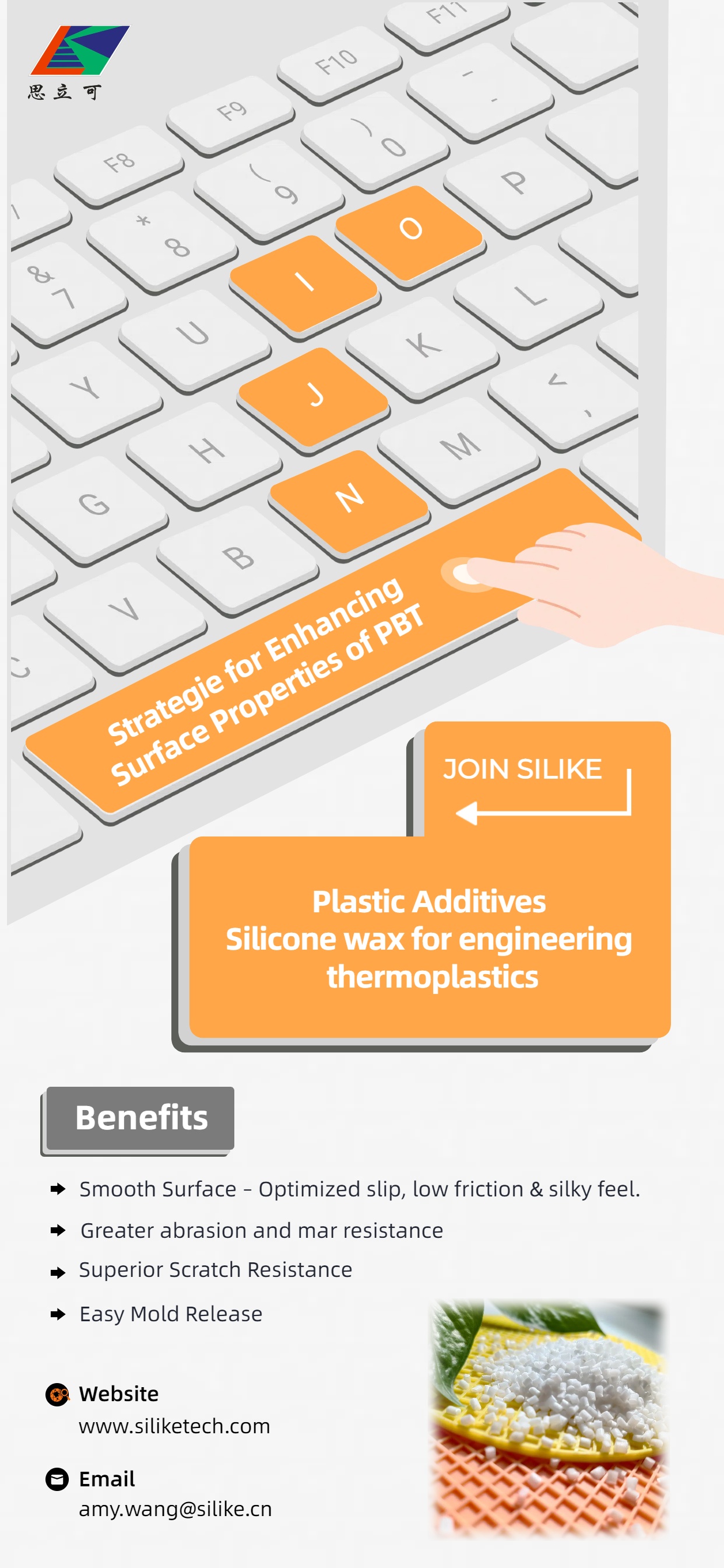What Is PBT and Why Is It So Widely Used?
Polybutylene Terephthalate (PBT) is a high-performance engineering thermoplastic synthesized from butylene glycol and terephthalic acid, with properties similar to Polyethylene Terephthalate (PET). As a member of the polyester family, PBT is widely used in automotive, electronics, and precision components due to its strong mechanical properties, excellent thermal stability, electrical insulation, resistance to chemicals, and moisture. These advantages make it a preferred material for connectors, housings, and interior trims.
Why Are Surface Issues in PBT Becoming a Growing Concern in High-End Industrial Applications?
As industries like automotive, electronics, and precision engineering raise the bar for material appearance and durability, Polybutylene Terephthalate (PBT)—a widely used engineering plastic—faces mounting pressure to deliver flawless surface quality.
Despite its robust mechanical and thermal profile, PBT is susceptible to surface defects during processing—especially when exposed to heat, shear, or moisture. These defects directly affect not only product appearance but also functional reliability.
According to industry data, the most common surface defects in PBT products include:
• Silver Streaks/Water Marks: Defects appearing as radial patterns on the product surface caused by moisture, air, or carbonized material following the flow direction
• Air Marks: Surface depressions or bubbles formed when gases in the melt fail to completely evacuate
• Flow Marks: Surface patterns resulting from uneven material flow
• Orange Peel Effect: Surface texture resembling orange peel
• Surface Scratches: Surface damage caused by friction during use
These defects not only affect product aesthetics but may also lead to functional issues. Surface scratch problems are particularly prominent in high-end automotive interiors and consumer electronics, with statistics showing that over 65% of consumers consider scratch resistance an important indicator when evaluating product quality.
How Can PBT Manufacturers Overcome These Surface Defect Challenges? Material Formulation Innovation!
Composite Modification Technology: BASF’s newly launched Ultradur® Advanced series PBT materials employ innovative multi-component composite modification technology, significantly enhancing surface hardness and scratch resistance by introducing specific proportions of PMMA components into the PBT matrix. Experimental data shows that these materials can achieve pencil hardness of 1H-2H, more than 30% higher than traditional PBT.
Nano-enhancement Technology: Covestro has developed nano-silica enhanced PBT formulations that increase surface hardness to 1HB level while maintaining material transparency, improving scratch resistance by approximately 40%. This technology is particularly suitable for automotive interiors and high-end electronic product housings with stringent appearance requirements.
Silicone-based Additive Technology: To address these performance-critical issues, SILIKE, a leading innovator in polymer additive technology, has developed a portfolio of siloxane-based additive solutions designed specifically for PBT and other thermoplastics.These effective additives target the root causes of surface defects and improve both processing performance and product durability.
SILIKE’s Silicone-based Additive Solutions for Enhanced PBT Surface Quality
Silicone Masterbatch LYSI-408 is a pelletized formulation with 30% ultra high molecular weight siloxane polymer dispersed in polyester (PET ). It is widely used as an efficient additive for PET, PBT, and compatible resin system to improve the processing properties and surface quality.
Key benefits of processing additive LYSI-408 for PBT engineering plastic:
• Enhances resin flowability, mold release, and surface finish
• Reduces extruder torque and friction, minimizing scratch formation
• Typical loading: 0.5–2 wt%, optimized for performance/cost balance
2. Silicone Wax SILIMER 5140: Polyester-Modified Silicone Additive in Engineering Thermoplastics
SILIMER 5140 is a polyester modified silicone additive with excellent thermal stability. It is used in thermoplastic products such as PE, PP, PVC, PMMA, PC, PBT, PA, PC/ABS, etc. It could Obviously improve the scratch-resistant and wear-resistant surface properties of products, improve the lubricity and mold release of the material processing process so that the product property is better.
Key benefits of Silicone Wax SILIMER 5140 for PBT engineering plastic:
• Delivers thermal stability, scratch & wear resistance, and surface lubricity
• Improves moldability and extends component lifespan
Looking to Eliminate Surface Defects, enhance product aesthetics, and boost PBT Product Performance?
For OEMs and compounders in the automotive, electronics, and precision plastics industries, using siloxane-based plastic additive is a proven strategy to address production challenges and enhance surface quality and scratch resistance in PBT. This approach helps meet the increasing market expectations.
SILIKE is a leading provider of modified plastic additives for PBT and a wide range of thermoplastics, offering innovative solutions to enhance the performance and functionality of plastic materials. With over 20 years of industry experience, we specialize in developing and manufacturing high-quality additives that improve the surface quality, and processing properties of plastics.
Contact SILIKE to discover how our PBT additive solutions can help you optimize product quality and processing efficiency—supported by our technical expertise and tailored application support.
Visit our website: www.siliketech.com, For free samples, reach out to us at +86-28-83625089 or email: amy.wang@silike.cn
Post time: Jun-16-2025






